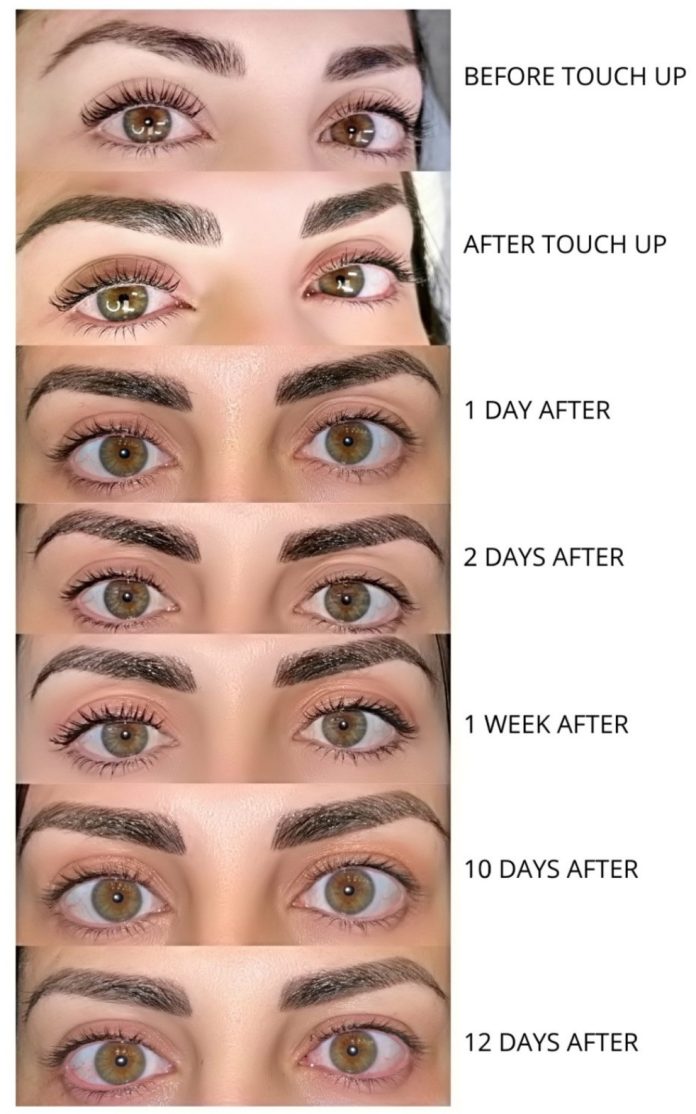When you have your eyebrows microbladed, the procedure itself is only about 10% of the total experience. The microblading healing process takes place over the next 30 to 60 days. Here are some things you should expect during this time. Hopefully, you’ll find this information helpful. In the meantime, here are some important tips to help you get through the recovery process. You should be able to see a final result in a couple of weeks.
Once the initial treatment is completed, you can return to wearing makeup right away. However, it’s recommended that you stay away from makeup for at least two weeks. Makeup powders can irritate or cause infection. To prevent this, you should cover the area with Vaseline. Avoid sun exposure and swimming pools, which can accelerate the fading process. Your eyebrows should be re-done every two years by a professional.
While you wait for the pigment to fully resurface, you should be careful not to pick or rub the area. This could cause scarring or peeling and will cause patchy results. Don’t use water during the first two weeks after microblading, as it can cause premature fading of the color. If you have any problems, contact your microblading technician for advice. You can also follow the same procedure for a touch up.
While you wait for your eyebrows to heal, you should avoid certain activities and products. For the first few days, your brows will be lighter than expected, and you should avoid water and makeup in that area for several days. You can return to your usual skincare and makeup routine after the first two weeks. If you have any problems, please contact a professional immediately. You’ll be notified of any complications or irritation as soon as possible.
During the first few weeks after your microblading procedure, your brows will look more natural than ever. You’ll notice that they’re softer and more natural than you thought, and you’ll notice that they’re more defined and darker than before. In addition, you’ll probably want to consider a different shape if you have a lot of hair or dark hair. You can also consult your artist about how to shape your brows.
The first few days after microblading are critical. You should avoid picking or scratching the area. In some cases, this will cause infection. If it does, you should consult a professional to ensure your safety. If your skin is sensitive, avoid touching the area while it’s healing. It can lead to infections, which can cause a rash. The itchiness and redness are not normal. Instead, they are signs of infection.
After the microblading process, your brows will appear softer than before. The color will come from both the epidermal and dermal layers of skin. If you’re unsure of the layers of skin, read our blog post on skin and its layers. This will help you understand the difference between the two. If you have any questions, don’t hesitate to ask your artist for advice. It’s important to follow the instructions of your artist and your microblading procedure will turn out to be a success.
After the microblading process, it’s important to remember that the pigment in your brows will start to flake and fall off. This is normal and should be ignored. You’ll notice some redness and slight bleeding on your face and in your eyebrows during the first few days. If you have a rash or blister, it’s best not to pick it. The pigment will be washed away by your own skin, so it’s important to keep it clean.
After the microblading procedure, you’ll need to let your brows heal for a few days. Depending on the type of skin you have, the pigmentation will fade to a gray shade. You can also apply a color or tint to your brows. This will enhance the overall look of your brows and make you look more attractive. It’s important to avoid picking and rubbing the scabs as these may affect the healing process.











